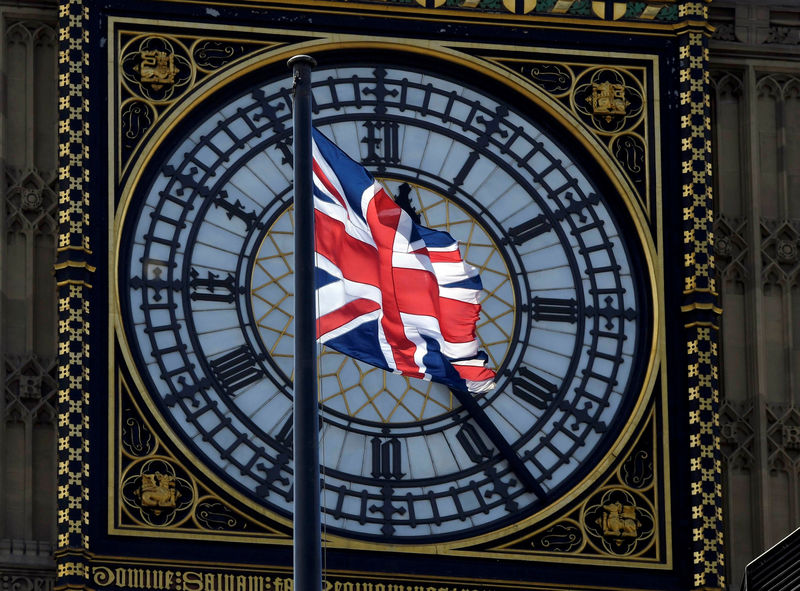By Vikram Subhedar and Helen Reid
LONDON (Reuters) - A surprise call for a UK election has barely ruffled feathers among foreign investors, who have pumped money back into British stocks after last year's sterling slide following the Brexit referendum spurred a rush for the exits.
More than half the money pulled from offshore UK-focused funds last year had returned as of end-March, Thomson Reuters Lipper data showed, as a stabilising pound, a brighter earnings outlook and a global rally in commodity-related and financial stocks lured investors back into UK shares.
While Prime Minister Theresa May's announcement this week of a snap election scheduled for June 8 caused a flutter, investors in the United States, Asia and Switzerland say Britain's third national vote in just over two years poses no big risk to their plans.
Instead, potentially protracted Brexit negotiations, the health of the domestic economy, particularly consumer spending as inflation rises, and Donald Trump's policies are on the radar for investors abroad, explaining their broad preference for London-listed global large-caps over smaller UK-focused firms.
“We have been fairly impressed with the way that the UK has weathered through the whole Brexit issue to this point," said Bruce McCain, chief investment strategist at Key Private Bank in Cleveland, Ohio.
"The fact that (May) is calling for an election with what appears to be the aim of solidifying her majority as she goes into the Brexit negotiations suggests that she is in pretty good shape."
Sterling jumped after May's election call as bearish bets were unwound and the currency, the clearest financial proxy for sentiment on the UK, has strengthened further on hopes that the June poll may stabilize domestic politics with the country facing its biggest challenge in half a century.
Stock markets, especially the benchmark FTSE 100 (FTSE), fell and dipped into the red for the year.
The resources- and banks-heavy FTSE 100, made up chiefly of multinational companies whose international revenues get more valuable when sterling falls, hit a record high last month after enjoying the dual benefit of a weaker pound and the global reflation trade.
For a more accurate read on the UK, however, equity investors have focused on the moves in an index of smaller, more domestically focused UK companies (FTMC) and appetite for these may wane if growth slows.
EYES ON THE UK CONSUMER
The FTSE midcaps (FTMC) bore the brunt of the selloff in the aftermath of last June's Brexit vote but have since staged an impressive rebound, up more than 30 percent since from lows and hovering near all-time highs.
Any slowdown in growth resulting from a pullback in consumer spending, however, is likely to be felt more acutely by smaller firms such as retailers and industrial companies that operate largely within the UK.
"With rising inflation, real earnings are flat over the year and will likely turn negative, while the savings rate is already low, leaving little room for higher spending," Valentin Bissat, senior strategist at Switzerland's Mirabaud Asset Management said.
Bissat said his firm was avoiding small and mid-cap companies.
British retail sales posted their biggest quarterly fall in seven years during the first three months of 2017, as rising prices since the Brexit vote started to bite.
Signs are growing that the UK consumer will be worse off this year and policies to support the economy will be a focal point in the run-up to the election, Neil Dwane, a strategist at Allianz (DE:ALVG) Global Investors, wrote in a note to clients.
"Party manifestos should make compelling reading for investors," Dwane said, adding he expects them to contain insights into fiscal policy and may include plans to rein in austerity measures, all of which would support growth.
The uncertainties and murky policy outlook have clouded foreign investors' view of Europe and the UK for more than a year. Many now say the risk lies in overestimating the impact of elections.
There are other things to worry about, investors say.
"It (the UK election) probably comes as a surprise to American investors," said Rick Meckler, president of investment firm LibertyView Capital Management in Jersey City.

"But right now it's not on the absolute top list (of concerns). The Trump administration provides more than enough daily things for investors to think about that could affect their portfolios in very clear ways."